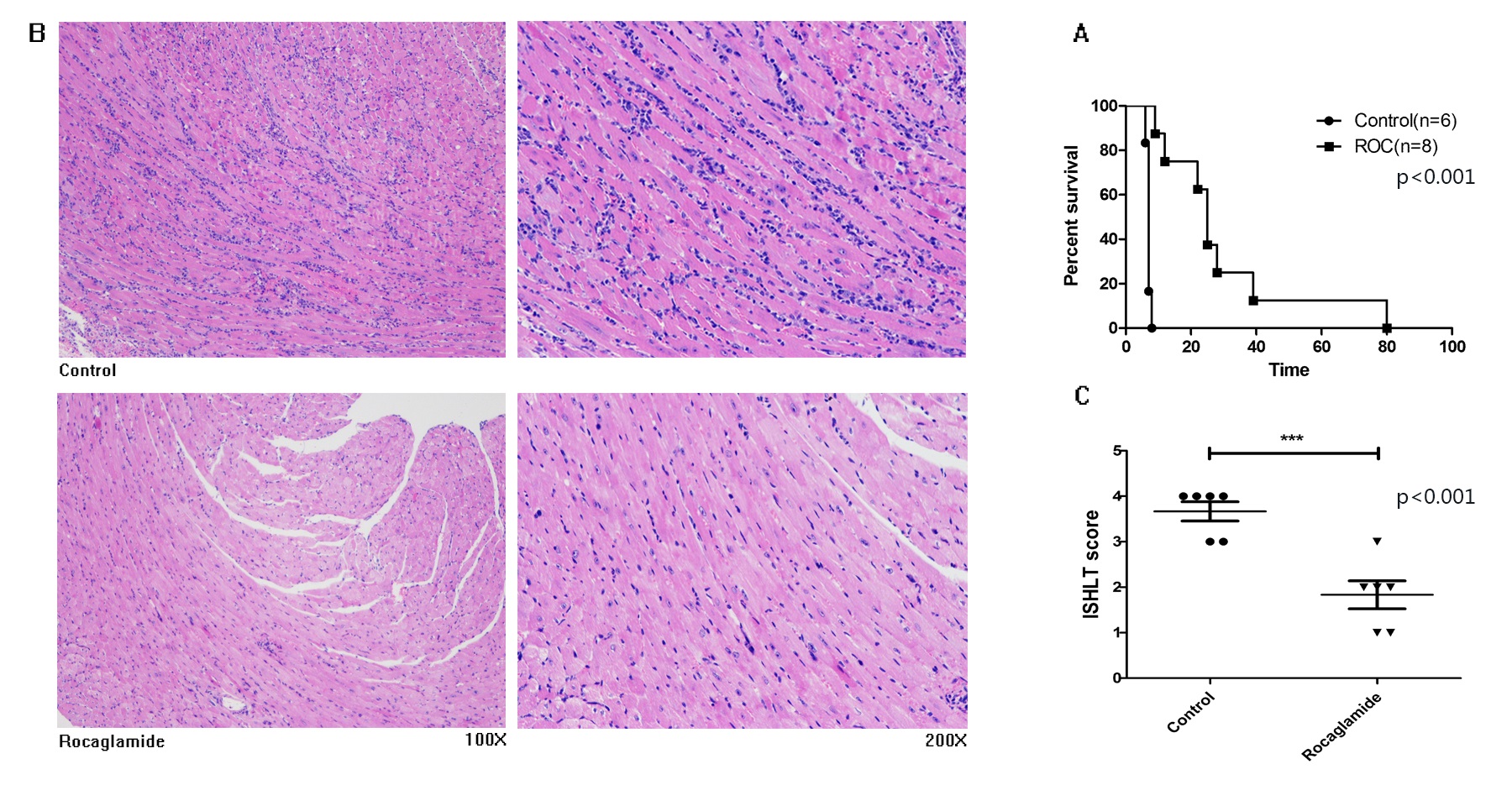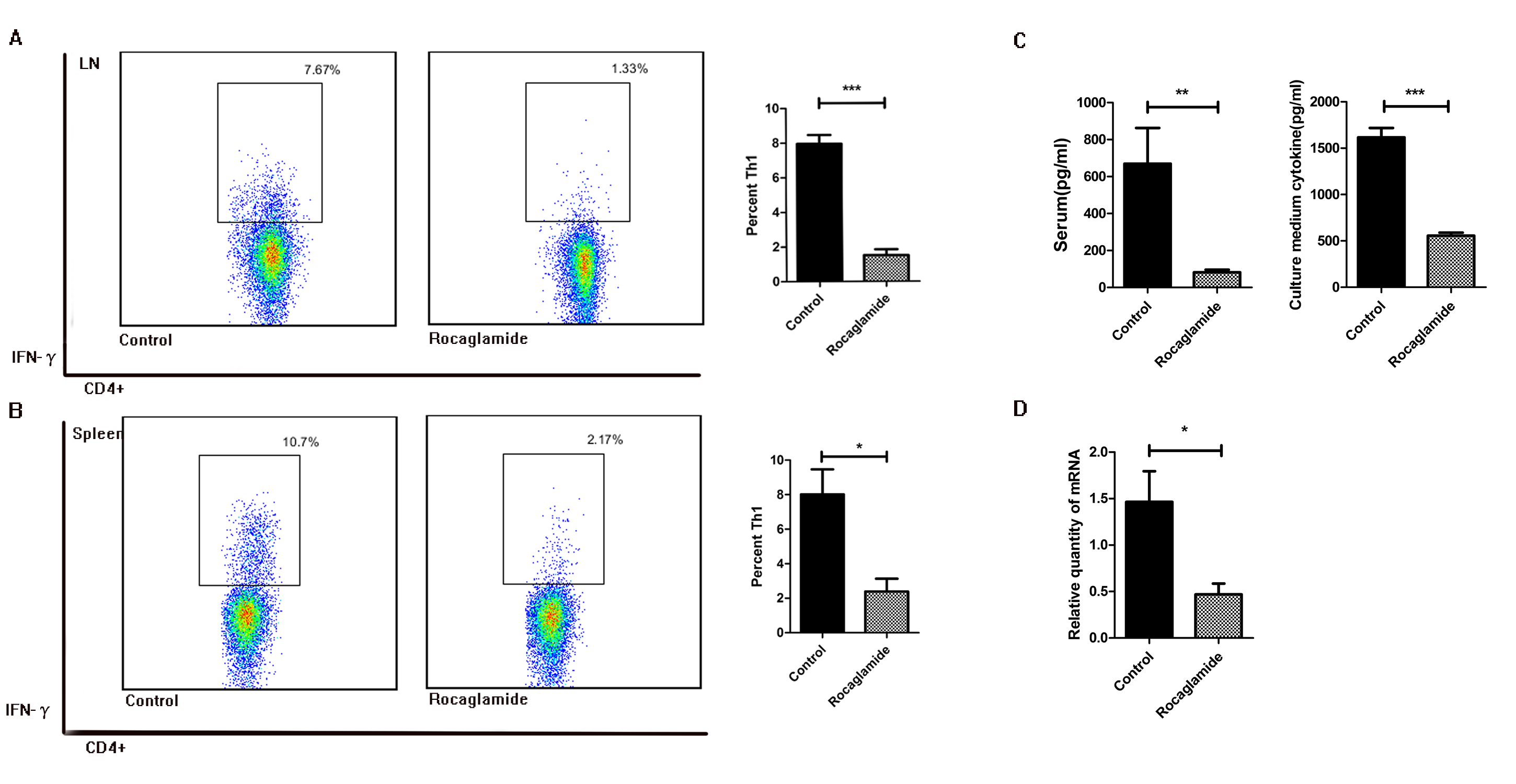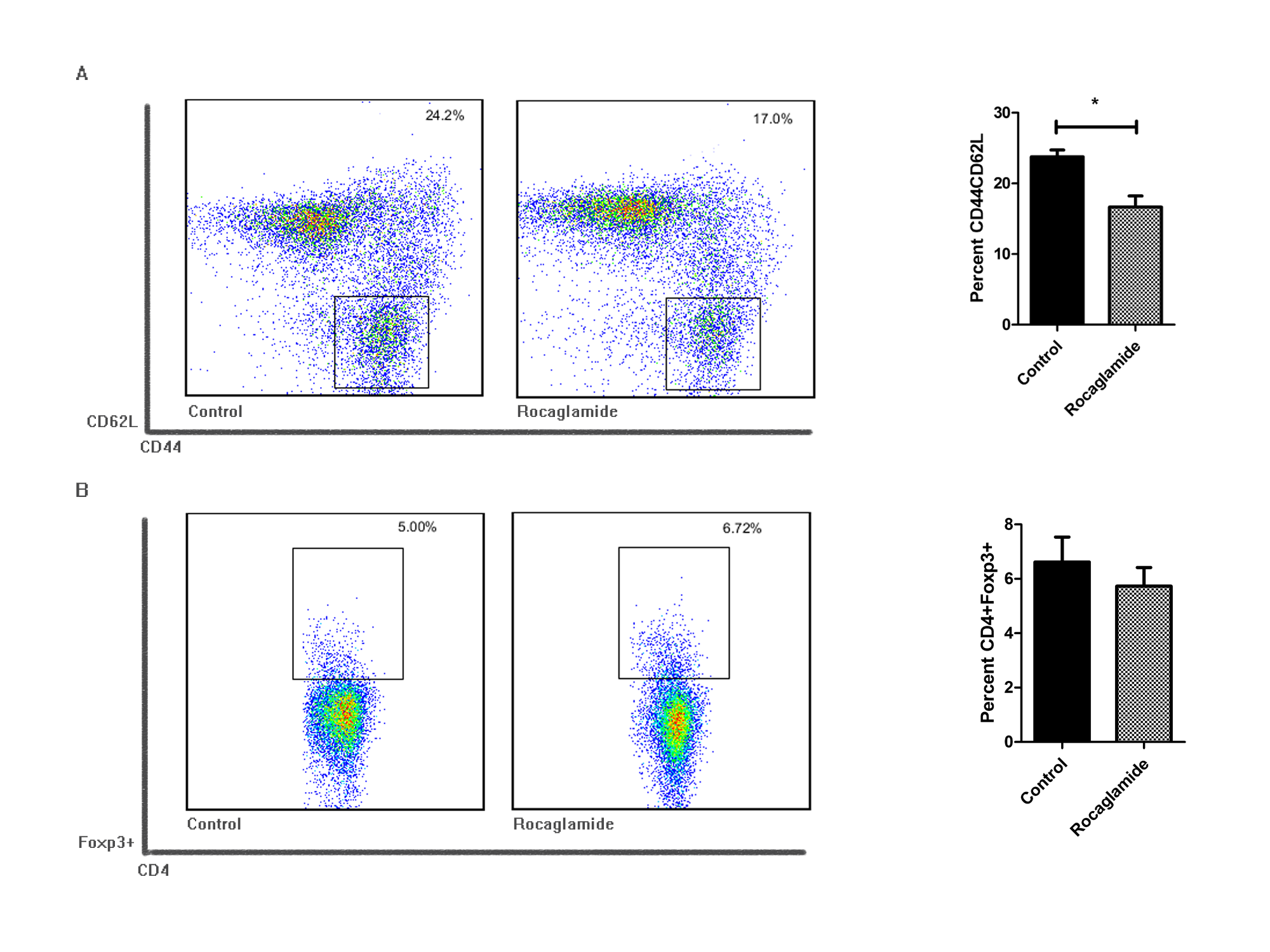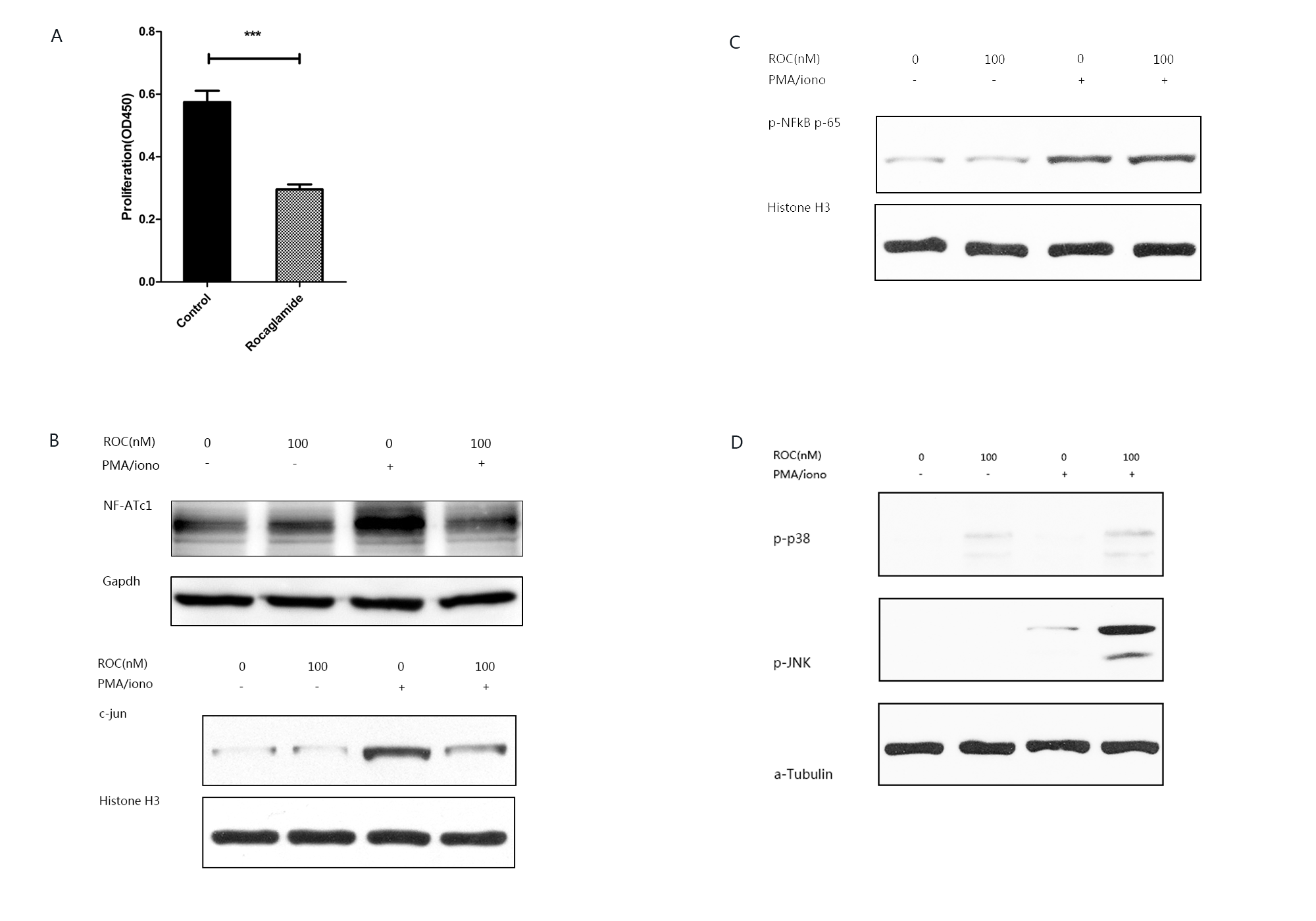Inhibition of Th1 and Th17 Cell Differentiation and Prolonged Graft Survival through NFAT Pathway Downregulation
1Institute of Organ Transplantation, Wuhan, China, 2Division of Transplantation, Boston, American Samoa
Meeting: 2019 American Transplant Congress
Abstract number: D144
Keywords: Graft survival, T helper cells
Session Information
Session Name: Poster Session D: Lymphocyte Biology: Signaling, Co-Stimulation, Regulation
Session Type: Poster Session
Date: Tuesday, June 4, 2019
Session Time: 6:00pm-7:00pm
 Presentation Time: 6:00pm-7:00pm
Presentation Time: 6:00pm-7:00pm
Location: Hall C & D
*Purpose: Extracts Aglaia (family Meliaceae) plants, specially Rocaglamide are used treatment strategy of autoimmune Inflammatory disease and allergic disease in traditional medicine in many Asia countries. Lots of autoimmune Inflammatory disease have been associated with promotion of T cell activity and cytokines, particularly IL-4 and IL-6 in vivo. Recently, many studies have demonstrated that purification rocaglamide are immunosuppressive that suppress levels of the Th1-type cytokine IFN-γ, IL-2 and IL-6 in peripheral blood T cells.Therefore, we hypothesized that rocaglamide prolong graft survival time in the heart transplantation model. We also found that rocaglamide can down-regulate the Th-1 cells, Th-17 cells and memory T cells in the spleen as well as Lymph nodes, which is been associated with the suppressive of rocaglamide inhibit NF-AT activation in T cells.
*Methods: Recipients were treated with PBS (n=6) and rocaglamide (n=8) for survival studies. Heart grafts were monitored until they stopped beating. grafts were performed, and recipients were sacrificed on days 7 for histological ,MLR,ELISA and flow cytometric analyse.
*Results: The administration of rocaglamide significantly prolonged the grafts from 7 to 25 days (median survival), compared to control group (P<0.001). On day 7 post-transplant, grafts of mice treated with rocaglamide showed a significantly decreased in the percentage of Th1 cells (7.9 ± 0.9% VS 1.58 ± 0.5 %,P<0.001) in the lymph nodes, as well as reduced in the spleen (8.0 ± 2.5% VS 2.4 ± 1.3%, P<0.05). We also found that the treatment of rocaglamide significantly inhibited the appearance of Th17 cells (6.4 ± 1.0% VS 1.8 ± 0.4 %,P<0. 01) in the lymph nodes and (5.9 ± 0.3% VS 2.9 ± 0.8%, P<0.01) in the spleen. Furthermore, the grafts prolonged survival, associated with the significant decrease of IFN-γ and IL-17 levels. In addition, our data show that the NF-AT activation is inhibited by rocaglamide, we also demonstrated that rocaglamide treated alone induced p38 and JNK phosphorylation in Jurkat T cells,furthermore,using inhibitors suppress p38 and JNK phosphorylation prevents rocaglamide-mediated reduction in NF-AT proteins. And the treatment of rocaglamide markedly reduced the memory T cells, compared with the untreated controls.
*Conclusions: These findings reveal a new potential immunosuppressive anti-inflammatory of rocaglamide, which inhibit the NF-AT activity. Specifically, it decrease the Th1 and Th17 cells, as well as the IFN-γ and IL-17 production.
To cite this abstract in AMA style:
Dai C, Tan R, Yang B, Markmann J, Chen D, Wei L, Chen Z. Inhibition of Th1 and Th17 Cell Differentiation and Prolonged Graft Survival through NFAT Pathway Downregulation [abstract]. Am J Transplant. 2019; 19 (suppl 3). https://atcmeetingabstracts.com/abstract/inhibition-of-th1-and-th17-cell-differentiation-and-prolonged-graft-survival-through-nfat-pathway-downregulation/. Accessed July 3, 2025.« Back to 2019 American Transplant Congress




